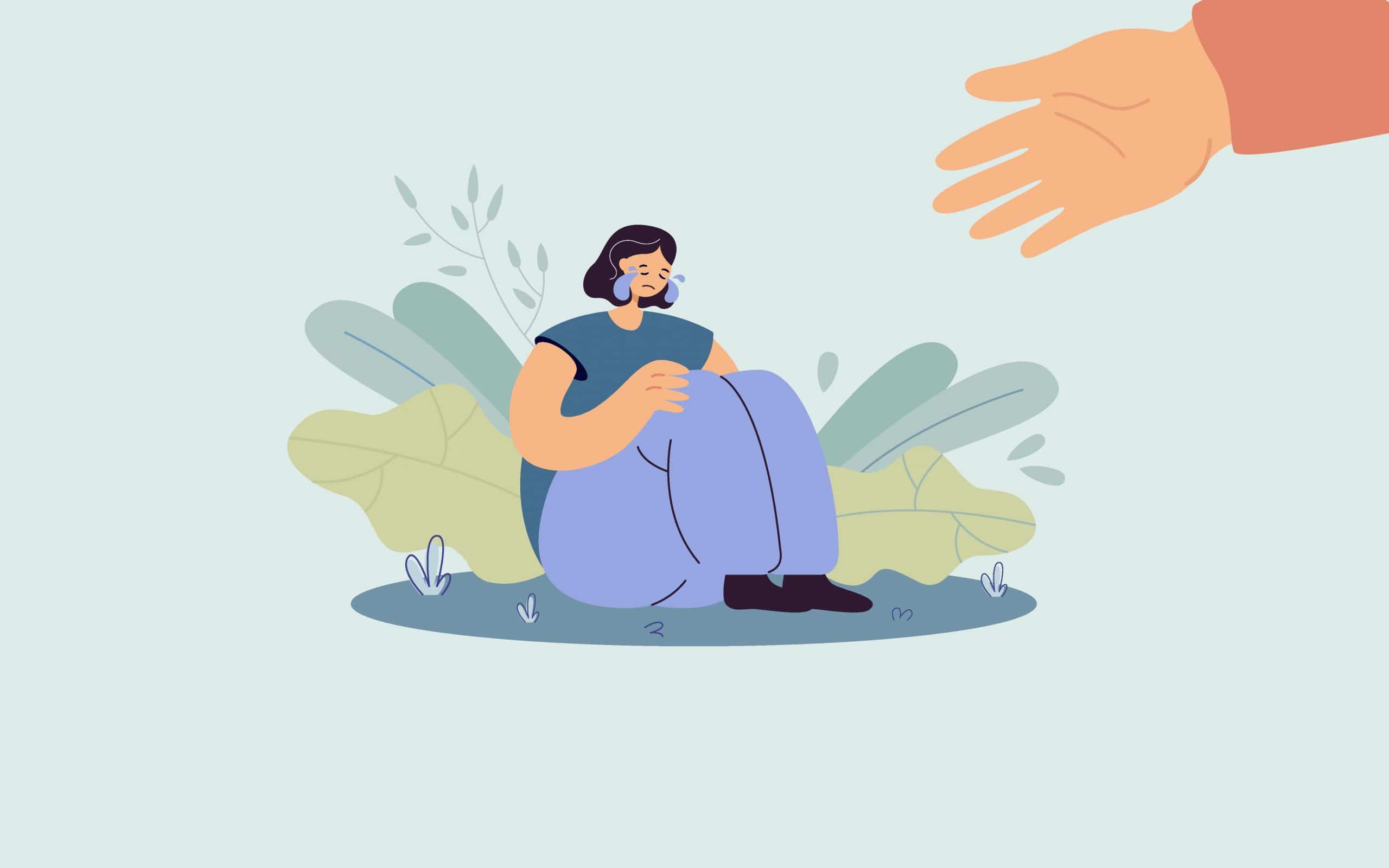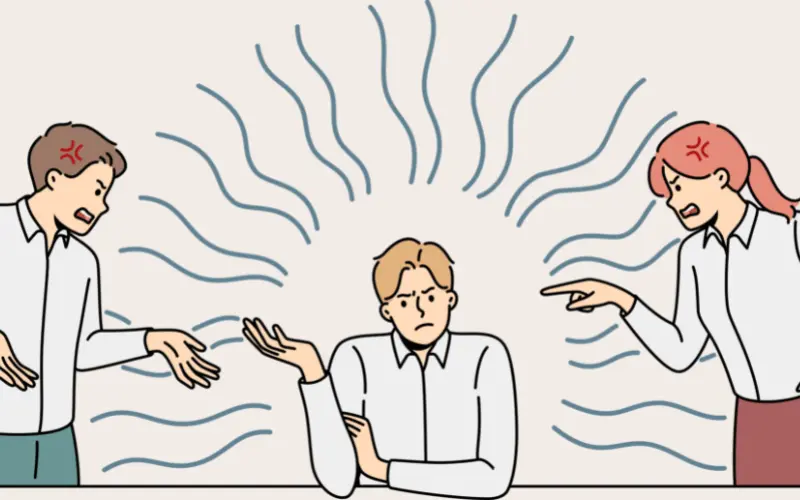Today, we are going to talk about what is generalized anxiety disorder– its causes, triggers, symptoms, and treatment! Stay tuned to learn all about generalized anxiety disorder!
The human brain has evolved a lot within the millions of years. At the time of early man- early hominids, precursors of the human race in its present form or our early ancestors, brain shape, size, and functionalities used to be a bit different. However, most of the brain mechanisms are still the same.
But, times have changed. In today’s day and age, our stressors are not that wild like might be for early human beings when they used to be hunting in the jungle or fighting with the tiger or other wild animals for their very survival. Our brain was brilliantly curated to manage the coping mechanism of that era.
But, today, as we stand, things are not that terrifying as might be for early human races who used to live for survival all the time. Because our brain mechanism as far as stress and coping aspects is concerned has not changed a lot, anxiety takes place. And the whole fight-flight response comes in.
No doubt, we all feel anxious from time to time regarding different things. But, when anxiety completely takes over our lives and starts interrupting in our daily activities, then it can be called disordered.
There are different types of anxiety disorders following human psychology like OCD, social anxiety, phobias, post-traumatic stress disorder, generalized anxiety disorder, and more.
Today, we are going to discuss all about GAD- what is generalized anxiety disorder?
Let’s start this!
What Is Generalized Anxiety Disorder?
As we mentioned above, everyone feels anxious sometimes, but with GAD, you worry over everyday life occurrences for no good and apparent reasons. People who suffer from generalized anxiety disorder are constantly on the lookout for disaster, they catastrophize a lot and can’t stop worrying about anything and everything.
What Are The Causes Of Generalized Anxiety?
According to brain experts, there can be different reasons for the cause of generalized anxiety in different people. Well, some of the most obvious causes found can be categorized as per these three major facets- environment, genetics, and brain chemistry or biology!
Because of the environment-
As per psychologists, many kids can be born a little anxious than others. But when they grow up in a stress-free and loving environment, they probably don’t tend to struggle with anxiety. That’s why the environment plays a major factor for someone struggling with GAD. Traumatic live events, loss of a loved one, abusive and toxic relationships, and more can push someone to develop generalized anxiety.
Because of the genetics-
Genetical history can also be one of the causes for someone dealing with generalized anxiety disorder. According to studies, families with a history of anxiety are probably to pass it on to their future generations. However, it is not always mandatory for everyone, and your lifestyle and various related aspects can also play a crucial role in that.
Because of the brain biology-
The brain consists of many chemicals and neurotransmitters. So, when they work well, you are more likely to process your emotions, thoughts, and feelings in an organized manner. But, when it’s the other way around, then certain chemicals and neural pathways might not work properly in the brain, leading to increased chances of anxiety.
Also Read: Autism: Symptoms, Causes, Treatments and Coping
What Are The Symptoms Of Generalized Anxiety Disorder?
These are some of the most common symptoms associated with generalized anxiety disorder-
- Trouble falling or staying asleep
- Trembling
- Increased heart rate
- Headaches
- Being easily startled
- Trouble swallowing
- A sense of impending disaster
- Crankiness
- Breathing more quickly
- Tension in the muscles
- Worry and stress that is excessive and continuing
- Problems are viewed in an unrealistic light
- Feeling constantly restlessness
- Sweating
- Concentration issues
- Nausea
- A frequent urge to use the restroom
- Excessive fatigue and weakness
If you are feeling most of these symptoms continuously or at least for six months, then you might be dealing with GAD. And you should seek professional help. Generalized anxiety is treatable and can improve over time.
Note: According to experts, symptoms must interfere with daily life and be present for at least six months to be diagnosed with GAD.
What Are Some Of The Most Effective Treatments For Generalized Anxiety?
Note: Reaching out to some professional psychologists or psychiatrists is the needed action when you are struggling with any mental health-related issues.
When you meet some professionals regarding generalized anxiety, they might ask you several questions related to your physical health history, and try to evaluate your past & triggers, so that they understand how your condition can be improved. Although lab tests cannot diagnose anxiety disorders, but they can assist doctors in determining whether a medical ailment is causing your anxiety symptoms or not.
Well, there are different ways to treat generalized anxiety disorders. Different professionals use different methods of treatment. Psychiatrists are more inclined towards medicinal help- they use different kinds of medicines to ease the symptoms of GAD. While psychologists are more about developing skills and coping patterns in their patience via different therapies- Cognitive behavioral therapy, Acceptance, and Commitment Therapy, Exposure therapy are some of the examples of them.
We are not saying which method is right or wrong. As we always say, different people, different situations, and different opinions. You have all the right to choose for yourself! What works for you is best for you!
However, daily exercise, a balanced diet, yoga, meditation, breathing exercises, and mindfulness are found to be a great help for people struggling with generalized anxiety. Of course, nothing can replace professional help, and you should reach out to some doctor anyhow.
So, this was it!
These were all about what is generalized anxiety disorder– causes, symptoms, and treatments one can opt for!
Beyond anything, it’s you, who have to believe in yourself and need to understand your triggers and behavior patterns with the help of some professional. You should acknowledge what you are feeling, why you are feeling, and how you can calm yourself down in the best healthy way possible.
Healing takes time- allow yourself to go through the recovery. Don’t be hard on yourself! You deserve the best!
Before signing off, keep following Hearthfeelings for more helpful mental health resources. Also, leave your comments about today’s blog in the comment section below! Would love to hear from you all!











